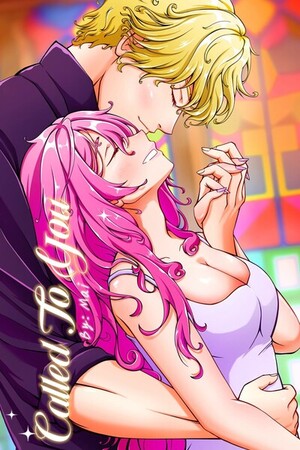Chapter 2:
Our Second Meeting (cont.)
Why I Write
That day.
A phrase novelists throw around to build suspense… but really, the more I thought about the situation I found myself in the past participle, the more I felt no phrase described it better than ‘that day’. Not that I think it’s a bad saying.
Tropes and clichés become tropes and clichés for a reason. They’re simple and effective—and for people who consume enough of a subgenre, they can be easily understood without requiring much exposition. Like a tsundere, or a kuudere, or a yandere—
Or a genki girl.
So to summarise the chain of events I found myself partaking in, we had ‘that day’ and a genki girl colliding at full speed. They were both unstoppable forces—there was no immovable object to be found.
“I see Mari,” I said to Yukimura.
“No.”
“But that wasn’t even a question?”
“No,” she said, flipping through the pages of her very, very suspicious book.
I alternated my gaze between the brown-haired schoolgirl and the raven-haired sociopath in front of me. Probably a misnomer, since sociopaths are said to be socially adept—but I couldn’t think of a better description for the way she intently read a book about classically conditioning people to maintain a social circle.
On the other hand, the schoolgirl went straight for the fiction bookshelves, pulled out a book with cover art that would make you question her sexuality, then quite literally pranced her way to a sofa chair to lounge as she read. Her hair bounced and bobbed as she did, and then two questions bounced and bobbed into my mind as well.
Firstly, why a light novel?
I asked the second question.
“You don’t like Mari very much, eh?”
“You-kun, I find the fact that you’re on a first name basis with her quite disturbing. I worry for her safety.”
“...You don’t like Tsujimoto very much, eh?”
“I don’t not like Tsujimoto-san. I just don’t want to be seen with you.”
Her use of a double-negative threw me off.
And her statement had a glaring contradiction in it, since she was voluntarily sitting with me—so perhaps the lie was the part about Mari.
Which would have been very sad if it were the truth.
“You’re both in the Literature Club,” I said.
“Thank you. Next, you’re going to tell me that books are made of paper.”
“......Not words?”
“You aren’t funny, You-kun. Is this your pathetic attempt at reminding everyone about your subpar wit, Idiot-kun?”
“Let’s not have that nickname catch on.”
So maybe the part about her using ‘not like’ instead of ‘dislike’ had no greater meaning. Just a habit of speech.
Still.
Weird.
Thus I probed. “In the Literature Club, what do you guys actually do? I’ve never actually had a friend in one until Tsujimoto joined this year.”
The only thing her response acknowledged was the fact that I spoke.
“I feel disgusted by your lack of social etiquette. Do people like noisy environments when they’re reading? What do you think, Idiot-kun?”
“You really hate the subject of her that much?”
Yukimura closed her book, then let out a sigh.
“Well, if you don’t mind my saying of things that might be slightly derogatory to this particular member of the human species, then sure, I’ll talk about Tsujimoto-san.”
“So I’m not a human, huh. And nice use of gerund there.”
“How do I put this nicely… I’m not very good with children.”
Oh, so that was her angle.
“I totally get it.”
“At the risk of making a blanket statement, kids are annoying. If there existed a reality show where kids were forced into giant beach balls and made to cry whilst they rolled around helplessly, I would watch it with great pleasure. I rewatch the clip of the younglings in Episode III daily. I dislike you. Naturally, this means I’m not good with dogs either, and therefore, the thought of Tsujimoto Mari does not spark joy.”
Oh, so that wasn’t her angle.
“You were a kid once—wait. Did you just compare Tsujimoto to a dog?”
It was an unfair comparison, since the Mari I knew was the furthest thing from a bitch.
“Yes, a dog. The innocence, constant worrying about me, the loyalty—and all because I returned her dropped handkerchief. Doglike, if I had to say, since childlike is an insult. Or ducklike. Like a very cute duckling who imprints on a cat.”
“Oh.”
For a self-proclaimed hater of children, Yukimura was rather childlike in her thought process.
A wave of relief washed over me.
I said, “Well, if that’s the case, I’m going to call Tsujimoto over.”
“No.”
A wave of sadness washed over me.
“Oh.”
So she wasn’t lying about the other part of her statement.
“If you didn’t want to be seen with me, why didn’t you just leave?”
“I don’t appreciate your use of past tense, You-kun. I do not want to be seen with you. I simply want to finish my book in a single sitting. However, since you’re clearly obsessed with diverting my attention from said book, I will now be taking my leave. Adieu!”
“Bolded and underlined and italicised?!”
Swiftly packing her bag, Yukimura slung it over her shoulder and left me alone.
That’s probably how a normal person would have gone about it.
But as you can tell from her insistence on using ‘Omae-kun’ and ‘Baka-kun’, Yukimura didn’t burden herself with societal constructs… and also schoolbags. She didn’t have a schoolbag.
Instead, her copy of How to Classically Condition your Friends and Other Social Tricks disappeared into the confines of her school cardigan, just like a bad magic trick, and with an obvious bulge in her stomach she sauntered away from our table.
She stopped just a few paces away.
“You-kun, I have club tomorrow, but I’m free on Wednesday. Text me your address so we won’t be seen in public.”
“Huh?”
I was dumbfounded.
After all, she still didn’t explain what people do in a Literature Club.
Once Yukimura had left the premises of the library, Mari—who had masked her observation of the Ice Queen expertly up to this point—walked over to the table I now sat at alone. Bouncing and bobbing.
Her hair, of course.




Please sign in to leave a comment.